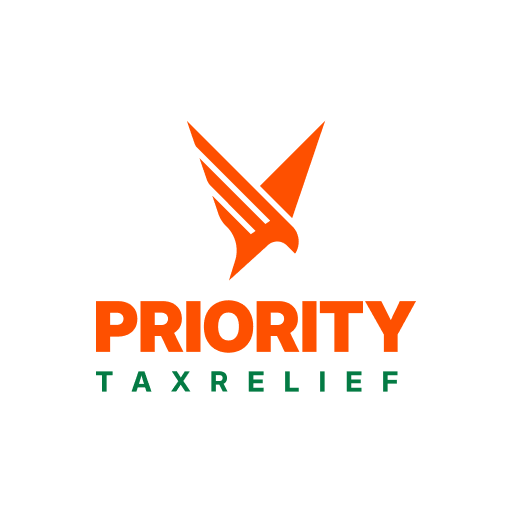2025 State Income Tax Rates and How They Work
In addition to federal income tax, most states also collect state income tax. State income tax typically works one of three ways: a progressive tax, a flat tax or none at all.

Many, or all, of the products featured on this page are from our advertising partners who compensate us when you take certain actions on our website or click to take an action on their website. However, this does not influence our evaluations. Our opinions are our own. Here is a list of our partners and here's how we make money.
State income tax rates receive relatively little attention compared with federal income taxes, but they can still put a large dent in your wallet. How large depends on the amount you earn, as well as where you live and work.
What is a state income tax?
A state income tax is a tax on income earned in that state. It is similar to a federal income tax, but instead funds state budgets rather than the federal government. Some states have a progressive tax, while others have a flat tax. Nine states do away with collecting state income tax altogether.
If you live and work in the same state, you probably need to file only one state return each year. But if you moved to another state during the year, lived in one state but worked in another, or have, say, income-producing rental properties in multiple states, you might need to file more than one state return. Because the price of many tax software packages includes preparation and filing for only one state, filing multiple state income tax returns can often mean paying extra.

on Priority Tax Relief's website

on Alleviate Tax's website
Types of state income tax
In general, states take one of three approaches to taxing residents and/or workers:
1. States with no income tax
Nine states — Alaska, Florida, Nevada, New Hampshire, South Dakota, Tennessee, Texas, Washington and Wyoming — do not have an income tax. One caveat to note: Washington has a tax rate of 7% to 9.9% on long-term capital gains exceeding a certain threshold. The idea of not having to pay state income taxes might sound appealing, but keep in mind that property taxes, sales taxes or other taxes and fees could be higher in those states. (Take a closer look at the income-tax-free states.)
2. States with flat income tax rates
Several states try to keep things simple by applying the same tax rate to most income. This means, for example, that a couple who made $500,000 will be taxed at the same rate as a couple who made $75,000. Of course, what counts as “income” depends on the state. And some states apply their tax rates to taxable income, while others use adjusted gross income.
3. States with progressive tax structures
Most states and the District of Columbia tax income similarly to how the federal government does: They tax higher levels of income at higher state income tax rates. However, state income tax rates tend to be lower than federal tax rates. Many range between 1% and 10%, and some states don't tax anything on the first few thousand dollars of income. High-tax states top out around 13%, and that’s often on top of property taxes, sales taxes, utility taxes, fuel taxes and whatever else the taxpayer must send to the federal government.
» MORE: See the federal tax brackets
2025 state tax rates
These state income tax rates apply to income earned in 2025, which is reported on tax returns filed in 2026. To learn more about how your state income tax rates work, visit your state’s taxation and revenue department website.
Income tax rates by state (2025)
State | Tax rates |
|---|---|
Alabama | 2% to 5% |
Alaska | Does not have state income tax. |
2.5%. | |
Arkansas | 2% to 3.9%. |
1% to 13.3% | |
4.4%. | |
Connecticut | 2% to 6.99%. |
Delaware | 2.2% to 6.6%. |
District of Columbia | 4% to 10.75%. |
Florida | Does not have state income tax. |
5.39%. | |
Hawaii | 1.4% to 11%. |
Idaho | 5.695%. |
4.95%. | |
Indiana | 3%. |
Iowa | 3.8%. |
Kansas | 5.2% to 5.58%. |
Kentucky | 4%. |
Louisiana | 3%. |
Maine | 5.8% to 7.15%. |
Maryland | 2% to 5.75%. |
5% to 9%. | |
Michigan | 4.25%. |
Minnesota | 5.35% to 9.85%. |
Mississippi | 4.4%. |
Missouri | 2% to 4.7%. |
Montana | 4.7% to 5.9%. |
Nebraska | 2.46% to 5.2%. |
Nevada | Does not have state income tax. |
New Hampshire | Does not have state income tax. |
New Jersey | 1.4% to 10.75%. |
New Mexico | 1.5% to 5.9%. |
4% to 10.9%. | |
North Carolina | 4.25%. |
North Dakota | 1.95% to 2.5%. |
2.75% to 3.5%. | |
Oklahoma | 0.25% to 4.75%. |
Oregon | 4.75% to 9.9%. |
Pennsylvania | 3.07%. |
Rhode Island | 3.75% to 5.99%. |
South Carolina | 0% to 6.2%. |
South Dakota | Does not have state income tax. |
Tennessee | Does not have state income tax. |
Texas | Does not have state income tax. |
Utah | 4.55%. |
Vermont | 3.35% to 8.75%. |
Virginia | 2% to 5.75%. |
Washington | Does not have state income tax. 7% long-term capital gains tax on profits above the state's standard deduction. An additional 2.9% tax applies to gains that exceed the exclusion by $1 million. |
West Virginia | 2.22% to 4.82%. |
Wisconsin | 3.5% to 7.65%. |
Wyoming | Does not have state income tax. |
Sources: Tax Foundation and state tax department websites. | |
When are state income tax returns due?
State income tax return deadlines usually mirror the federal deadline in mid-April, but exceptions exist. Residents of Virginia, for example, generally have until May 1 to file their state returns. Check with your state's tax and revenue authority for further information.
» MORE: When are federal taxes due?
Highest and lowest taxed states
California, Hawaii, New York, New Jersey and Washington, D.C. have some of the highest marginal tax rates, with each having a top tax rate above 10%. However, it's important to keep in mind that not everyone pays the highest tax rate and that state income taxes don't make up the whole picture when looking at the overall tax burden. As is the case for federal returns, the amount you’ll pay to your state is also a function of your filing status, whether you have dependents, and whether you qualify for tax deductions and credits.

on Priority Tax Relief's website

on Alleviate Tax's website
State tax rates (2021-2024)
Curious how state income tax brackets and rates have changed over the years? Take a look back.





